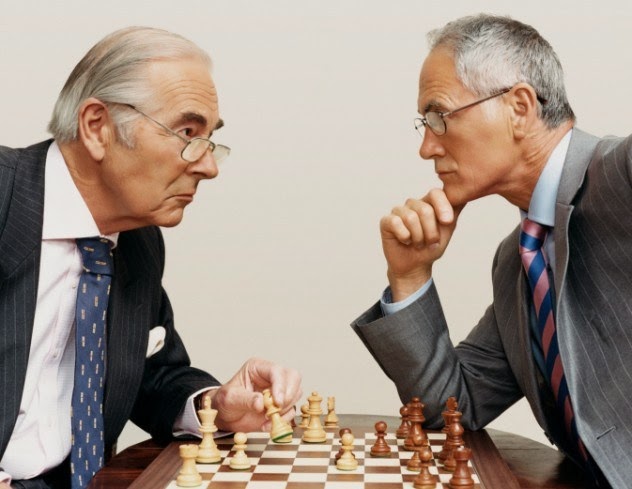Facts About Korea: Korean - Japanese Rivalry
Lots of countries have friendly rivalries—Australia and New Zealand for example—while some are little more explosive, a la Pakistan and India. Somewhere in between these two extremes lie South Korea and Japan. While these two nations won’t be launching nukes at each other any time soon, they’ve definitely had some heated exchanges over the last few years.In the past, Japan had a bad habit of invading the Korean peninsula. After several failed attempts, the Japanese successfully conquered Korea in 1910 and ruled with a heavy hand, forcing Koreans to practice Shintoism and to speak Japanese.
Things got worse during World War II, when the Japanese military forced nearly 200,000 women, most of them Korean, to work as prostitutes (aka “comfort women”) in brothels across China. On top of that, thousands of Koreans were tortured in the infamous Unit 731.Decades later, many South Koreans still hold a grudge and feel that Japan hasn’t properly apologized for its war crimes. Over 20 years ago, the Japanese government admitted that atrocities took place, but since then, there’s been some backsliding. Some Japanese politicians claim the women volunteered to become prostitutes, while one mayor actually said “comfort women” were necessary to the Japanese war effort.
The issue is further complicated by a group of islands off the coast of South Korea. Alternately called Dokdo (Korean) and Takeshima (Japan), these islands have stirred up as much as controversy as World War II. South Korea claims they’ve controlled the islands since 1696, while the Japanese say they’ve owned the island since the mid 1600s. So it should come as no surprise that Koreans and Japanese citizens don’t get along.
In 2012, Gallup Korea took a poll to see which country Koreans despise the most, and a whopping 44.1 percent chose Japan, while North Korea scored a measly 11.7 percent. This anti-Japanese bias sparks all sorts of interesting controversies. For example, Koreans refer to the “Sea of Japan” as the “East Sea.” And when UFC welterweight champion Georges St-Pierre wore the Rising Sun emblem on his karate gi, featherweight competitor Jung Chan-Sung (“The Korean Zombie”) wrote a strongly worded public letter letting both GSP and the world know that Koreans view the Rising Sun the same way Jews view the swastika. Even during the 2012 Olympics, South Koreans were upset when Japanese soccer players wore the infamous symbol on their jerseys. So it should get pretty interesting when Korean athletes travel to Tokyo for the 2020 Olympics.
## Among top 3 most tourists visited Korea were from Japan....
Lots of countries have friendly rivalries—Australia and New Zealand for example—while some are little more explosive, a la Pakistan and India. Somewhere in between these two extremes lie South Korea and Japan. While these two nations won’t be launching nukes at each other any time soon, they’ve definitely had some heated exchanges over the last few years.In the past, Japan had a bad habit of invading the Korean peninsula. After several failed attempts, the Japanese successfully conquered Korea in 1910 and ruled with a heavy hand, forcing Koreans to practice Shintoism and to speak Japanese.
Things got worse during World War II, when the Japanese military forced nearly 200,000 women, most of them Korean, to work as prostitutes (aka “comfort women”) in brothels across China. On top of that, thousands of Koreans were tortured in the infamous Unit 731.Decades later, many South Koreans still hold a grudge and feel that Japan hasn’t properly apologized for its war crimes. Over 20 years ago, the Japanese government admitted that atrocities took place, but since then, there’s been some backsliding. Some Japanese politicians claim the women volunteered to become prostitutes, while one mayor actually said “comfort women” were necessary to the Japanese war effort.
The issue is further complicated by a group of islands off the coast of South Korea. Alternately called Dokdo (Korean) and Takeshima (Japan), these islands have stirred up as much as controversy as World War II. South Korea claims they’ve controlled the islands since 1696, while the Japanese say they’ve owned the island since the mid 1600s. So it should come as no surprise that Koreans and Japanese citizens don’t get along.
In 2012, Gallup Korea took a poll to see which country Koreans despise the most, and a whopping 44.1 percent chose Japan, while North Korea scored a measly 11.7 percent. This anti-Japanese bias sparks all sorts of interesting controversies. For example, Koreans refer to the “Sea of Japan” as the “East Sea.” And when UFC welterweight champion Georges St-Pierre wore the Rising Sun emblem on his karate gi, featherweight competitor Jung Chan-Sung (“The Korean Zombie”) wrote a strongly worded public letter letting both GSP and the world know that Koreans view the Rising Sun the same way Jews view the swastika. Even during the 2012 Olympics, South Koreans were upset when Japanese soccer players wore the infamous symbol on their jerseys. So it should get pretty interesting when Korean athletes travel to Tokyo for the 2020 Olympics.
## Among top 3 most tourists visited Korea were from Japan....

No comments:
Post a Comment